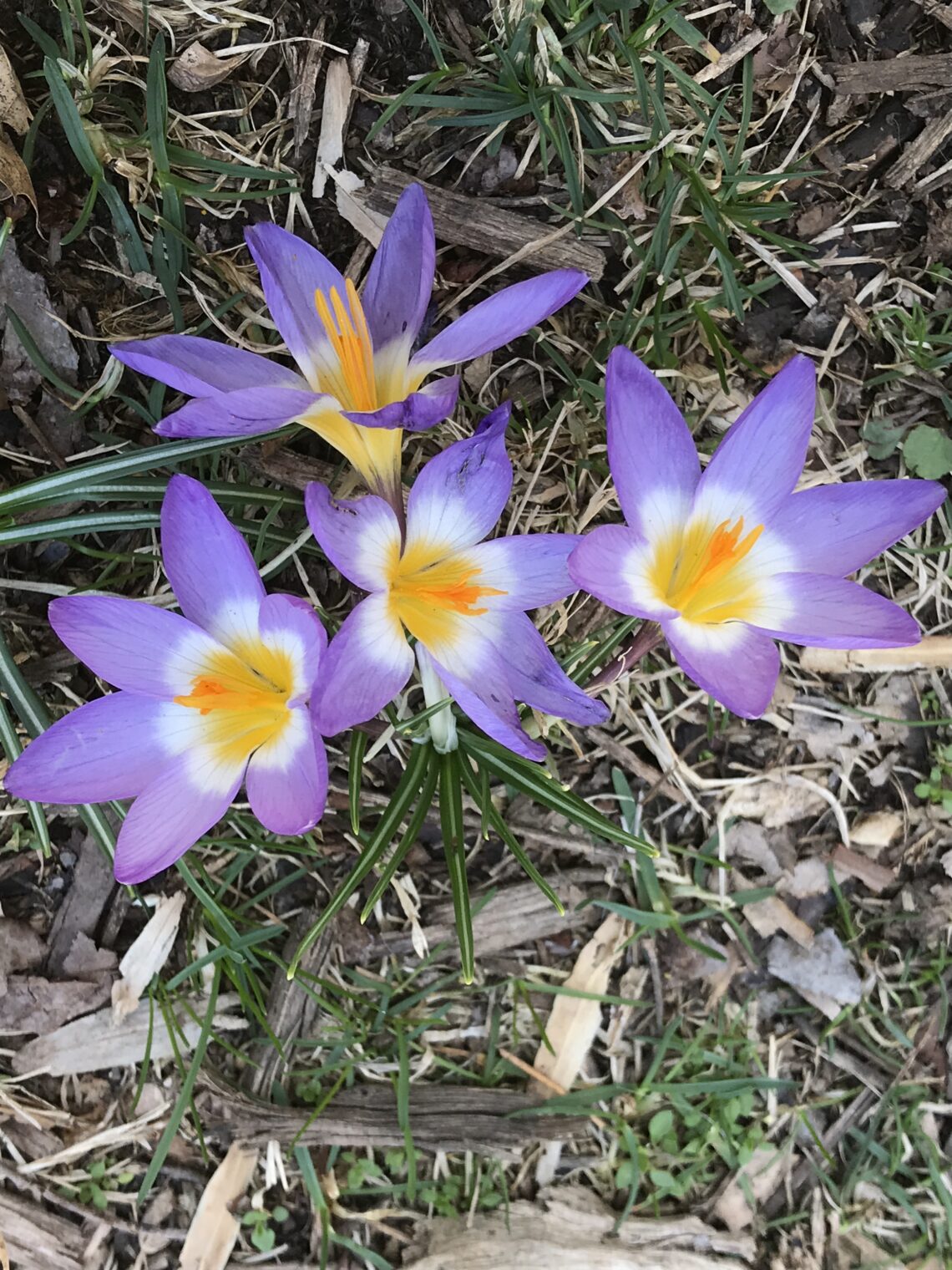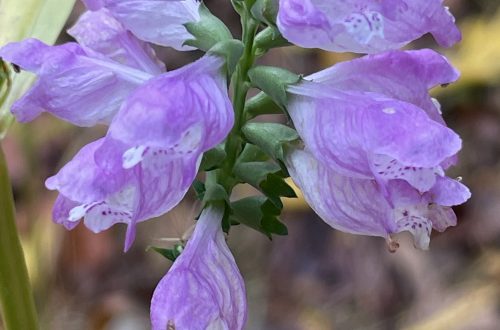
Coronavirus Tidbits #131 3/21/21
Quick links
News Diagnostics Drugs Devices Epidemiology/Infection control Tips Politics Feel good du jour Comic relief Perspective/Poem Bits of beauty
Announcements:
First, there is now a Resources Page here for the most commonly asked questions I’m getting.
Happy to continue to answer your questions/concerns as best I can, so don’t be shy about that.
News
BREAKING NEWS: Due to overwhelming spring break crowds, the city of Miami Beach will impose an 8 p.m. curfew in the South Beach entertainment district and block most eastbound traffic entering the city after 10 p.m., beginning Saturday.
— Miami Herald (@MiamiHerald) March 20, 2021
https://t.co/HYladHMMFW
~ ~ ~
New Variant Classification scheme:
defines three classes of SARS-CoV-2 variants: Variant of Interest; Variant of Concern; and Variant of High Consequence.
The B.1.1.7, B.1.351, P.1, B.1.427, and B.1.429 variants circulating in the United States are classified as Variants of Concern.
These variants share one specific mutation called D614G, which was first documented in the USA in the initial stages of the COVID-19 pandemic in 2020.
Various COVID-19 vaccines have recently launched additional clinical studies to validate efficacy against some of these variants.
https://www.cdc.gov/coronavirus/2019-ncov/cases-updates/variant-surveillance/variant-info.html
~ ~ ~
Covid-19 and Global Food Security: One Year Later
It’s been just over a year since the International Food Policy Research Institute (IFPRI) first warned that “Covid-19 could lead to a food security crisis if proper measures are not taken.” The author, former IFPRI director general Shenggen Fan, was following developments in Wuhan, China at the time, ground zero for the novel coronavirus. He watched the government there lift roadblocks for food deliveries amidst a looming hunger threat in the country.
Fast forward to today and the world has passed through two grim milestones: 100 million Covid-19 cases and 2 million deaths. At the same time, at least four countries around the world—Yemen, South Sudan, Nigeria, and Burkina Faso—are facing the looming prospect of famine, with no less than 13 countries close behind. As a result, the UN secretary-general has announced a High-Level Task Force on Preventing Famine.
Nearly a year ago, UN World Food Programme (WFP) executive director David Beasely stood before the United Nations Security Council and warned of “famines of biblical proportion” and a near doubling of people experiencing crisis levels of hunger from 135 million to 270 million as a result of pandemic. Just this past week he returned to that same body and announced that “we are once again sliding toward the brink of the abyss” and reported that that terrible milestone had been achieved—272 million people face acute hunger today.
Make no mistake: Covid-19 has made the hungry hungrier and the poor poorer. But by what means exactly?
https://www.csis.org/analysis/covid-19-and-global-food-security-one-year-later
~ ~ ~
Mar-a-Lago partially closed due to COVID outbreak.
— AprilDRyan (@AprilDRyan) March 19, 2021
Is COVID still a hoax though? #MaraLago https://t.co/nXawtwIkUg
~ ~ ~
Good news! Breastfeeding moms do not transfer COVID-19 to babies, milk may actually fight the virus
ROCHESTER, N.Y. — In a welcome change of pace, researchers from the University of Rochester are offering up some good coronavirus news. Their study indicates that COVID-infected breastfeeding mothers don’t transfer SARS-CoV-2, the virus causing COVID, through their breast milk. That in and of itself is welcome news, but study authors also report that COVID antibodies appear to pass from mother to child during feedings as well.
https://www.studyfinds.org/breastfeeding-covid-19-babies-milk/
https://mbio.asm.org/content/12/1/e03192-20
Diagnostics:
still an incredible, negligent last of testing.
Drugs and Vaccines:
‘It’s a very special picture.’ Why vaccine safety experts put the brakes on AstraZeneca’s COVID-19 vaccine
ScienceInsider, By Gretchen Vogel, Kai Kupferschmidt
The decision this week by more than 20 European countries to temporarily stop using AstraZeneca’s COVID-19 vaccine has opened a rift between vaccine safety experts, who say the cases of serious clotting and bleeding that triggered the pause are alarming and unusual, and public health officials concerned that the immunization pause on a continent in the grip of the pandemic’s third wave could take a heavy toll.
“The harm caused by depriving people of access to a vaccine will likely vastly outweigh even the worst case scenario if any link to the clotting disorders is eventually found,” University of Leeds virologist Stephen Griffin told the United Kingdom’s Science Media Centre. The European Medicines Agency (EMA) and the World Health Organization have recommended that countries continue immunizations while they investigate the reports.
Read more…https://www.sciencemag.org/news/2021/03/it-s-very-special-picture-why-vaccine-safety-experts-put-brakes-astrazeneca-s-covid-19
~ ~ ~
AstraZeneca’s COVID-19 Vaccine and Thrombosis
Toronto-based Thrombosis Canada announced it reviewed recent reports from the United Kingdom and Europe relating to the COVID-19 vaccine made by AstraZeneca and developing a very rare type of thrombosis (blood clots) that is associated with thrombocytopenia (low blood platelets).
It is the view of Thrombosis Canada as of March 18, 2021, that, based on all available evidence, people who receive the AstraZeneca vaccine are not at increased risk of developing blood clots when compared with the general population.
However, the AstraZeneca vaccine may be associated with extremely rare cases of blood clots that occur in the brain (called cerebral sinus vein thrombosis) and are associated with low blood platelets.
These blood clots were found to occur in 1 in 250,000 to 1 in 500,000 people who received the vaccine.
By comparison, people who have COVID-19 are at much higher risk of developing blood clots, which occur in about 1 in 20 people in hospital with COVID-19 and about 1 in 100 people who have COVID-19 but are not in a hospital.
~ ~ ~
AstraZeneca vaccine doesn’t prevent B1351 COVID in early trial
Two doses of the AstraZeneca-Oxford University COVID-19 vaccine were ineffective against mild-to-moderate infections with the B1351 variant first identified in South Africa, according to a phase 1b-2 clinical trial published today in the New England Journal of Medicine.
The double-blind multicenter study, led by scientists at the South African Medical Research Council Vaccines and Infectious Diseases Analytics Research Unit, studied the safety and the efficacy of the AstraZeneca ChAdOx1 nCoV-19 vaccine in HIV-negative adults aged 18 to 64 who received either two standard doses of the vaccine or a placebo in a 1:1 ratio 21 to 35 days apart from Jun 24 to Nov 9, 2020. Median follow-up after the second dose was 121 days.
10.4% effectiveness against variant
~ ~ ~
California doctor remixes 'My Shot' from 'Hamilton' in video to promote COVID-19 vaccine https://t.co/8fPsTzalHN
— Los Angeles Times (@latimes) March 19, 2021
~ ~ ~
~ ~ ~
Aspirin may have lung-protective effects and reduce the need for mechanical ventilation, ICU admission and deaths in hospitalized COVID-19 patients
George Washington University researchers found low dose aspirin may reduce the need for mechanical ventilation, ICU admission and in-hospital mortality in hospitalized COVID-19 patients. Final results indicating the lung protective effects of aspirin were published today in Anesthesia & Analgesia.
Over 400 patients admitted from March to July 2020 to hospitals around the United States, including those at GW Hospital, the University of Maryland Medical Center, Wake Forest Baptist Medical Center and Northeast Georgia Health System, were included in the study. After adjusting for demographics and comorbidities, aspirin use was associated with a decreased risk of mechanical ventilation (44% reduction), ICU admission (43% reduction), and in-hospital mortality (47% reduction). There were no differences in major bleeding or overt thrombosis between aspirin users and non-aspirin users.
Preliminary findings were first published as a preprint in fall 2020. Since then, other studies have confirmed the impact aspirin can have on both preventing infection and reducing risk for severe COVID-19 and death. Chow hopes that this study leads to more research on whether a causal relationship exists between aspirin use and reduced lung injury in COVID-19 patients.
Devices:
Epidemiology/Infection control:
On ventilation and school reopening:
Our letter (https://t.co/haHo8YGLmJ) calls for CDC and OSHA to issue recommendations and requirements that address transmission of COVID-19 by inhalation of aerosols. /22
— Linsey Marr (@linseymarr) March 11, 2021
I’m OK with 3′ IF all other precautions are being followed. Revised list:
1 Universal and correct use of masks
2 CLEANING THE AIR through ventilation and/or filtration & maintaining healthy facilities
3 Distancing
4 Handwashing & resp etiquette
5 Contact tracing
~ ~ ~
Obesity, CVD, other factors mean 75% of US adults may be at risk for severe COVID-19
As many as three-quarters of the U.S. adult population has at least one risk factor for severe COVID-19 infection according to CDC guidelines, which could make vaccine prioritization difficult. Data were derived from Ajufo E, et al. Am J Prev Cardiol. 2021;doi:10.1016/j.ajpc.2021.100156.
The most prevalent risk conditions as defined by the CDC were obesity (41.3%), age 65 years or older (20.2%) and chronic kidney disease (15.8%), Khera and colleagues found. An estimated 6.2 million individuals (14.5%) had heart disease. Among these, virtually all had at least one additional CDC risk factor (97.9%) and most had at least two or at least three risk factors (83.8% and 58.5%, respectively), the researchers wrote.
~ ~ ~
UK virus variant found in Brazos County pets [TX]
The United Kingdom coronavirus variant has been detected in a cat and a dog from the same household in Brazos County, Texas A&M University researchers announced Monday. The university said it is the first reported finding of the B.1.1.7 variant in any animal worldwide.
The UK variant was confirmed in a senior black lab-mix dog and a senior domestic shorthair cat from the household where the owner was diagnosed with COVID-19 in mid-February. According to a university press release, the pets were tested on Feb. 12, only two days after their owner was diagnosed with COVID-19, as part of ongoing research funded by the Centers for Disease Control and Prevention and conducted by Texas A&M experts.
In a phone interview Monday, Sarah Hamer, a veterinarian and epidemiologist in the Texas A&M College of Veterinary Medicine & Biomedical Sciences said the animals initially showed no symptoms of illness a month ago, but exhibited sneezing after their initial test. Hamer said it wasn’t clear that the sneezing was related to the virus, and that both animals are healthy now. In general, Hamer said, the virus hasn’t shown to be particularly harmful to animals.
~ ~ ~
‘A worse reality than we expected’: COVID-19 fuels TB epidemic
Experts said that the impact of COVID-19 on the tuberculosis epidemic is much worse than they predicted a year ago.
The Stop TB Partnership shared updated data showing that nine of the countries with the most TB cases — which represent 60% of the global TB burden — saw a drastic decline in diagnosis and treatment of TB infections in 2020, ranging from 16% to 41%. Looking at the 23 countries included in Stop TB Partnership surveillance, 1 million fewer people were tested and diagnosed for TB, equaling a 23% overall decrease. According to the data, this drop in diagnosis and treatment brought the overall number of people diagnosed and treated for TB in those countries to 2008 levels.
“Not only do we have a lot of lives of people suffering, but this is also taking us back to 2008-2009 data,” Ditiu said. “This is a dramatic situation.”
~ ~ ~
The Lancet: Study finds COVID-19 reinfections are rare, more common for those above age 65
The findings underline that measures to protect the elderly — including social distancing and vaccinations are essential even if people have already been diagnosed with COVID-19
- People over the age of 65 are at greater risk of catching COVID-19 again, with only 47% protection against repeat infection compared with 80% for younger people.
- Protection against reinfection remained stable for more than six months.
- The findings underline that measures to protect the elderly – including social distancing and vaccinations are essential even if people have already been diagnosed with COVID-19.
- The analysis focused on the original COVID-19 strain and made no assessment of variants.
Most people who have had COVID-19 are protected from catching it again for at least six months, but elderly patients are more prone to reinfection, according to research published in The Lancet.
https://www.eurekalert.org/pub_releases/2021-03/l-tls031821.php
Tips, general reading for public:
StayAtHome
Wash your hands.
Rinse and repeat.
Politics:
Residents of wealthy and middle-income countries have received about 90 percent of the nearly 400 million vaccines delivered so far. Under current projections, many of the rest will have to wait years.
Russia and China, meanwhile, have promised to fill the void as part of their vaccine diplomacy.
the World Health Organization created a technology pool last year to encourage companies to share know-how with manufacturers in lower-income nations.
Not a single vaccine company has signed up.
For months, the United States and European Union have blocked a proposal at the World Trade Organization that would waive intellectual property rights for Covid-19 vaccines and treatments.
https://www.nytimes.com/2021/03/21/world/vaccine-patents-us-eu.html?
~ ~ ~
Almost every state is vaccinating a higher portion of white people than their share of the population, even tho they die at half the rate.
— Amy Maxmen, PhD (@amymaxmen) March 19, 2021
97% of vax go to white people in Vermont, Maine. 95% in Iowa, W Virginia, 90%+ in Minnesota, Nebraska, Indiana, WI
https://t.co/fMr1LattYp
~ ~ ~
Made an active google doc (linked here) to help consolidate Asian American community and justice organizations to look into, mutual aid links etc. Many of the orgs linked need donations. https://t.co/OxCiMbvnTS
— sab•睿妍 is THEY THEM (@sasponella) March 1, 2021
~ ~ ~

~ ~ ~
This means that Black, Latino and Indigenous people – almost all of whom are less likely to live past age 65 (thanks to White Supremacy) and often populate low income 'essential jobs' are less likely to access vaccines than White folks of any age. https://t.co/pN6c5BXbnT pic.twitter.com/gwdcEdsMJa
— RiShawn Biddle (@dropoutnation) March 15, 2021
~ ~ ~
Google "doesn't have the budget" to pay my speaker's fee for a talk on misogyny and internet safety
— Kate Manne (@kate_manne) March 19, 2021
~ ~ ~
West Virginia Is Trying To Block Needle Exchanges Amid The Worst HIV Outbreak In The US https://t.co/9EKnuEWsDU via @dvergano
— Gregg Gonsalves (@gregggonsalves) March 19, 2021
Feel good du jour:
https://twitter.com/Goodable/status/1372650840276750336?s=20
~ ~ ~
To the people who sequenced the virus, developed the vaccines, volunteered for trials, reviewed pages upon pages of safety and efficacy data, manufacture the vaccines, who pack the vaccines, who deliver and store the vaccines, who administer the vaccinations… Thank you all. https://t.co/VlqJwa52Eo
— Dr Kathleen Bachynski (@bachyns) March 18, 2021
love is the universal language, no words needed pic.twitter.com/m9D1hh83Jp
— Humor And Animals (@humorandanimals) March 17, 2021
~ ~ ~
https://twitter.com/dcarpenter70/status/1372713757751660544?s=20
Comic relief:
Perspective/Poem
I need a shirt that says “normalize staring at the abyss together”…
— Kyle P. Edmonds, MD (@kpedmonds) March 17, 2021
It can go with the large print of my favorite @Oatmeal drawing that hangs in my house: https://t.co/DL5eFlwHQa pic.twitter.com/NIMcvKPZpp
~ ~ ~
Poem for the Pandemic
I won’t arise and go now and go to Innisfree
I’ll sanitise the doorknob and make a cup of tea.
I won’t go down to the sea again, I won’t go out at all,
I’ll wander lonely as a cloud from the kitchen to the hall.
There’s a green-eyed yellow monster to the north of Kathmandu
But I shan’t be seeing him just yet and nor, I think will you.
While the dawn comes up like thunder on the road to Mandalay
I’ll make my bit of supper and eat it off a tray.
I shall not speed my bonnie boat across the sea to Skye
Or take the rolling English road from Birmingham to Rye.
About the woodland, just right now, I am not free to go
To see the Keep Out posters or the cherry hung with snow
And no, I won’t be travelling much, within the realms of gold.
Or get to Milford Haven. All that’s been put on hold.
Give me your hands, I shan’t request, albeit we are friends
Nor come within a mile of you until this shit show ends.
–From Hazel Wood, Highbury, 23 October 2020
Bits of beauty:
— grannystanding4Truth (@granny_st) March 19, 2021
~ ~ ~






